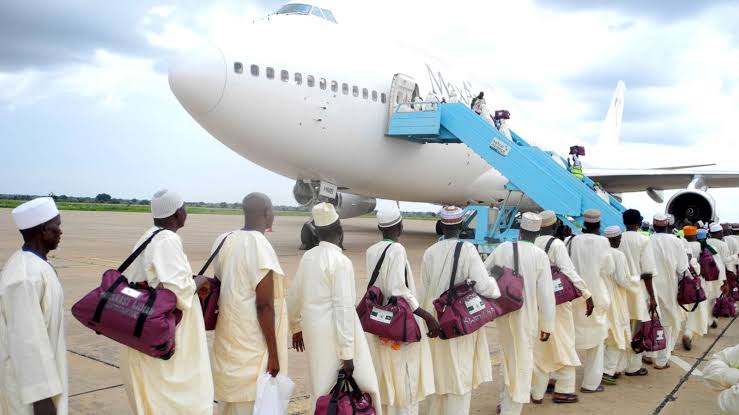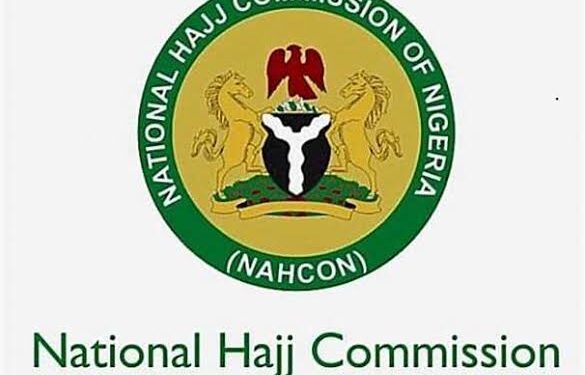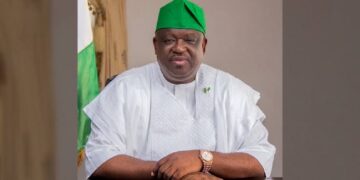The Edo Muslim Pilgrims Welfare Board has announced that all intending pilgrims for the 2025 Hajj should make an initial deposit of N8.4 million each.
This directive comes as the Board prepares for the upcoming pilgrimage season, and it is expected that the deposit will be a prerequisite for the smooth processing of travel arrangements, despite the pending confirmation of the final Hajj fare by the National Hajj Commission of Nigeria (NAHCON).
The announcement was made by the Chairman of the Edo Muslim Pilgrims Welfare Board, Ibrahim Oyarekhua, during a press briefing held on Sunday in Benin City. Mr. Oyarekhua emphasized the importance of making this early deposit in anticipation of the final announcement of the Hajj fare by NAHCON.
He explained that while the exact fare would be confirmed at a later date – usually about two to three weeks before the deadline for payments, it was crucial for pilgrims to start making deposits to ensure a smooth process when the time for full payments arrives.

Mr. Oyarekhua further elaborated on the rationale behind the early deposit, pointing to a new policy recently instituted by Saudi Arabia.
According to him, the Saudi government now requires that all payments for the Hajj be made at least two months before Arafat day. This new requirement is part of a series of reforms aimed at improving the logistical arrangements for the annual pilgrimage, which attracts millions of Muslims from around the world. By ensuring that payments are made well in advance, the authorities in Saudi Arabia hope to streamline the process and avoid last-minute delays or complications.
In his statement, Mr. Oyarekhua noted, “The board is sensitising Muslim communities about the importance of deposits, even if they can’t pay the full N8.4 million initially.” He stressed that making a deposit, even if it is not the full amount, would secure a spot for intending pilgrims, ensuring they don’t miss out on the opportunity to perform the pilgrimage.
This flexible approach aims to accommodate those who may not have the full amount ready at once but are committed to participating in the Hajj.

Reflecting on the success of the previous year’s Hajj, Mr. Oyarekhua highlighted that the new payment policy implemented by Saudi Arabia had already proven to be beneficial. He stated that during the last Hajj, all pilgrims from Edo State received their visas in a timely manner, well before their departure for Saudi Arabia.
This was a direct result of the new requirement to complete payments early, which allowed the necessary travel documentation to be processed without delays. The advance payment system thus played a key role in ensuring that the pilgrims’ journey to the holy land proceeded smoothly and without any last-minute hitches.
In light of this, Mr. Oyarekhua urged all prospective pilgrims to act swiftly and deposit any amount they could afford into the Board’s official account. He explained that partial deposits would be accepted, and this would help secure their place in the upcoming pilgrimage. “Intending pilgrims are urged to deposit any amount into the board’s account to secure their spot,” said Mr. Oyarekhua. He reiterated that the Board was committed to working with the Muslim communities across the state to ensure that as many pilgrims as possible could participate in the sacred journey to Mecca.
The directive by the Edo Muslim Pilgrims Welfare Board underscores the need for early financial planning for those wishing to embark on the spiritual journey of Hajj. With the final Hajj fare still to be confirmed by NAHCON, the N8.4 million deposit serves as a preparatory step to ensure that pilgrims are not caught off guard by any sudden announcements. It also reflects the evolving nature of the Hajj process, with new policies from Saudi Arabia shaping the way the pilgrimage is organized and financed.
In conclusion, the Edo Muslim Pilgrims Welfare Board is taking proactive steps to ensure that the 2025 Hajj season proceeds smoothly for all intending pilgrims from the state. By encouraging early deposits and raising awareness about the new requirements, the Board hopes to avoid the challenges of previous years and make the pilgrimage experience as seamless as possible for all participants.

































